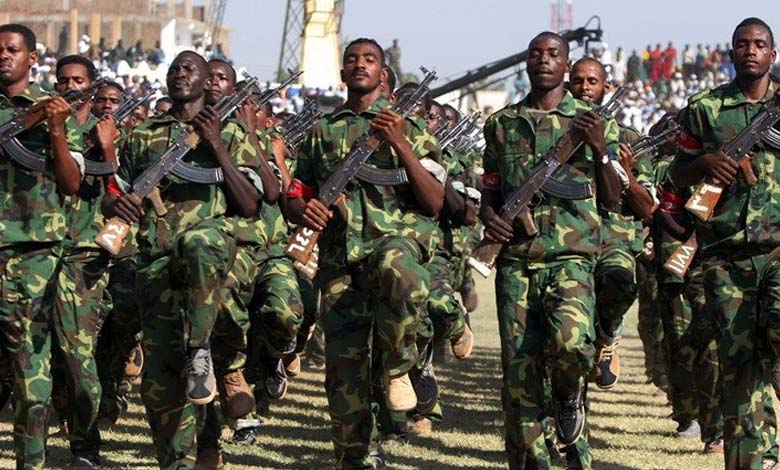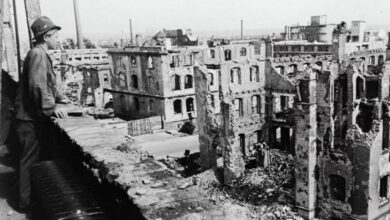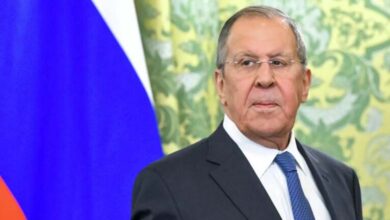The Muslim Brotherhood controls the army and hinders negotiations… International options available in Sudan

Sudanese writer Salah Shuaib stated that those who are hindering the chances of reaching negotiations to stop the war are not the army, but the Islamists and their allies, who control Burhan‘s movement space.
Shuaib added in an article published in the Sudanese newspaper (Al-Taghyeer) that the army leadership has no power to decide on the events of the war after the Brotherhood has become the army’s base, which only obeys their orders. We have noticed that every move since the start of options to reach a settlement to stop the war has been met with rejection by the Islamists and their supporters in the military effort.
He emphasized that the ongoing war has not killed any significant leader from the wealthy leaders of the National Congress, but it has claimed those who are loyal to them, most of whom are under the influence of the ideology of political Islam. If these people own multinational companies, huge investments, and properties spread across the capitals of Asia, Africa, and Europe, they will be busy with their businesses and will be safe from war condemnations.
-
Reasons to classify the Muslim Brotherhood in Sudan as a “terrorist group”
-
The Muslim Brotherhood and the Sudanese Army: A History of Rumor-Mongering
This is the case with the leaders of the Islamic movement who do not lead the lines for martyrdom to acquire paradise, but prefer to enjoy life by encouraging young people to fight on their behalf, defending their pleasures. Even if the army wins the battle, the leaders of political Islam will return to the country to resume control of power and loot the country’s wealth, while giving crumbs to the poor Islamists.
The journalist noted that the multiple attempts made by the international community with its continental and regional currents have faced solid obstacles in the continuous movement to stop the war and save Sudanese society from the trap caused by Sudanese political Islam after ending its effectiveness through the December revolution.
Shuaib continued: Burhan does not now hold all the strings of army management, behind which the Islamists hide for planning, support, and media. We already know that the negotiations in Jeddah, Manama, and Nairobi have tested the army leader’s ability to hold these strings, but there are parties behind the scenes that hinder efforts to stop the war.
He explained that the sanctions issued by the US Treasury Department on the leaders of both sides of the conflict in Sudan, which included symbols of the Muslim Brotherhood in the country, have not been effective. We do not think that the problem lies solely with those affected by the sanctions like Ali Karti and Abdel Bassit, as most leaders of the Islamic movement organizations are involved in fueling the war, and it is difficult to stop their diverse efforts in this regard.
-
The Sudanese War orchestrated by the Muslim Brotherhood… Their Main Tools and Objectives?
-
Sudan: The Muslim Brotherhood Inflames the Situation in Khartoum
The writer believes that the United States – in the event of the failure of its next mediation for negotiations – has no choice but to use its capabilities within the UN organization to find an international consensus to intervene under any pretext to save the Sudanese people from this humanitarian disaster caused by the leaders of the political Islamic current in the country.












